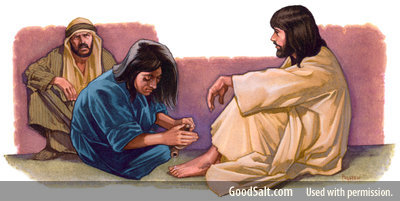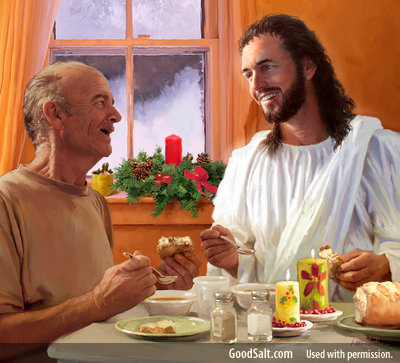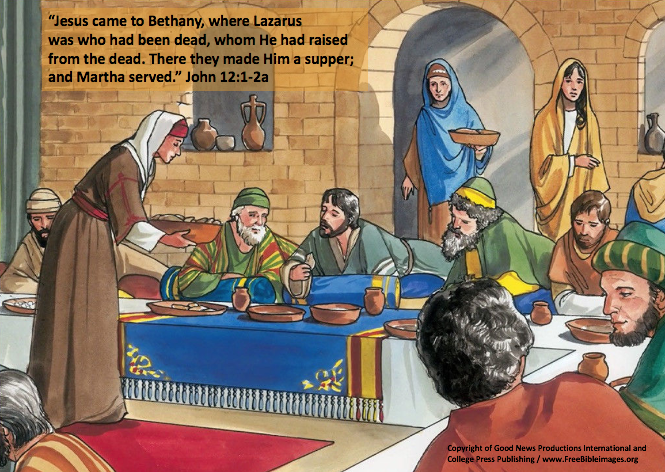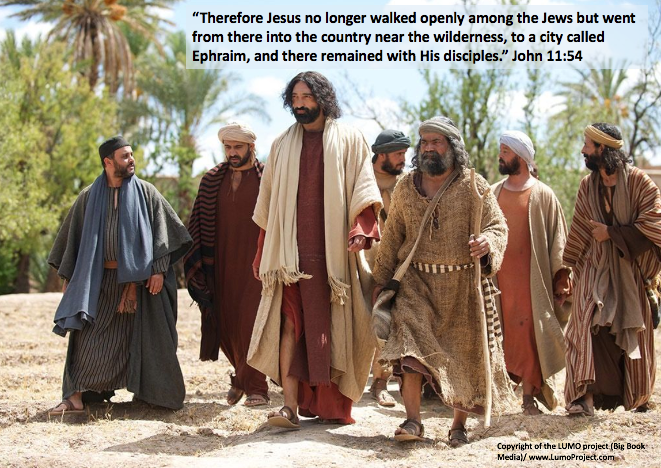“But the chief priests plotted to put Lazarus to death also, because on account of him many of the Jews went away and believed in Jesus.” John 12:10-11
There are times when we think that if we could acquire something or change, we could be more at peace. Things would be better for us. We may even make promises to ourselves. If this would be different, I would be happier. Yet if we succeed in acquiring something or changing something it seems like something takes its place and we start acquiring or changing something all over again. And on it goes. If that will be different then I will be happy. When that changes, then I will have peace and things will be okay. It seems like a cycle that goes on in our lives.
For example, we tell ourselves, when COVID-19 is over, then I will be happy. Or when I am released from jail, then I will have peace. When I get a job… get married… have children… get a house… go on vacation… get new clothes… get a new car… get a faithful group of friends, then I will be happy. We tell ourselves things like this, don’t we? We focus on these things and promise ourselves that when this happens, then I will be happy and fulfilled.
But what about the time from now until we acquire or change that something we are aiming for? What are we like during that time? What type of attitude do we have? Are we happy or at peace then? What about the great fade? Lets’ say we are achieving or acquiring something. You know, you get there and it fades on you? Like sand slipping between your fingers. You arrive there and you thought it would be so much better, but it is not. So, we go on to something else. We set up a new hope because what we came to faded on us and it did something we did not expect.
Or what if we become convinced that the situation or person will not change? I’m going to have to live with this situation in my life, these circumstances, these issues in my life that make me unhappy? Are we going to have this heavy ball and chain attached to our emotional hearts the rest of our lives? Dragging it around? Oh, I will just have to live with this. I have tried to acquire something different or change this, or remove that, but I have been defeated at every turn. At that point we may ask, where is the victory of Jesus in our lives when we face challenges? Where is that joyous victory in Jesus when things don’t go the way we had hoped? Where is the victorious Christian life when problems do not go away? If God is God, why doesn’t He change this and make it better?
The key issue here is to ask where am I looking for victory? Is it in some external event or happening? Is it possible you are looking in the wrong place? Ask the Lord, “Teach me, Lord, to look in the proper place for the triumph of Christ.” We may be expecting a type of victory that God is not primarily concerned about. We must look in the right place for victory.
The Bible is clear, God wants to lead us in to His Son’s triumph. “Now thanks be to God who always leads us in triumph in Christ, and through us diffuses the fragrance of His knowledge in every place.” (2 Corinthians 2:14). For the next few days we will look at Jesus’ triumph in John 12:9-19. How does Jesus lead us to victory?
The first way is THROUGH HIS RESURRECTION POWER (John 12:9-11). In the context of this passage, Jesus had raised Lazarus from the dead about three weeks earlier (John 11). Six days before the Passover, Jesus had an evening meal with some dear friends – Martha, Mary, Lazarus, Simon the leper, and the Twelve disciples (John 12:1-8; cf. Mark 14:3-9). On the next Sunday, a great crowd came to Bethany of Judea to see Jesus. “Now a great many of the Jews knew that He was there; and they came, not for Jesus’ sake only, but that they might also see Lazarus, whom He had raised from the dead.” (John 12:9). But the crowd did not come “for Jesus’ sake only,” but also to see the one whom Jesus “had raised from the dead.” “Was it true what they heard? Was Lazarus truly alive?” They had to see for themselves.
But not everyone was excited to see Jesus and Lazarus. “But the chief priests plotted to put Lazarus to death also.” (John 12:10). The chief priests met together and decided to put Lazarus to death because a living Lazarus was irrefutable evidence that Jesus was who He claimed to be – the Son of God. What did Lazarus do wrong? He was simply raised from the dead. The word “also”indicates that they wanted to kill both Lazarus and the One who had raised him from the dead because both of them were rapidly growing in popularity. In John 11:50, Caiaphas said one man must die for the nation. But one man was not enough. Now two men had to die. Maybe the chief priests thought if they killed both Jesus and Lazarus, Lazarus would remain dead and less people would believe in Christ.
“Because on account of him many of the Jews went away and believed in Jesus.” (John 12:11). When the people saw Lazarus alive, they abandoned the religious leaders and believed in Jesus as the Christ, the Son of God. Lazarus’ resurrection was an undeniable witness to the power and Person of Jesus. Christ’s resurrection power declares Him to be the Son of God, God Himself (cf. Romans 1:4).
Wherever evangelism takes place, opposition is usually not far behind. The religious leaders did not want to see a massive movement of people turning to Jesus in faith. So, they make more plans to kill both Jesus and Lazarus.
If we are to be led to victory by the Lord Jesus, we must tap into His power, the same power that raised Lazarus from the dead and got the peoples’ attention. We can do that by walking in the Spirit and obeying His leading in our lives (Romans 8:4-13).
The common people were responding to Jesus in faith, but the religious establishment was rejecting Christ. This was to be expected in a fallen world where Satan is the ruler and his kingdom is shrinking as the gospel spreads. Praise God for the message of the gospel being taught by Christ and being authenticated by His miraculous signs! The miracle of raising Lazarus from the dead was doing what God designed it to do – to persuade people to believe that Jesus is the Christ, the Son of God, so that believing they may have life in His name (cf. John 20:31).
How has God manifested His resurrection power in your life so that unbelievers are attracted to Jesus? The Lord is far more interested in changing our character than He is in changing our circumstances. He is far more interested in making us holy than He is in making us happy.
Has Christ transformed your anger into acceptance? Your critical attitude into one of compassion? Your emptiness into eternal life? Your greed into generosity? Your grief into gladness? Your guilt into innocence? Your hatred into love? Your haughtiness into humility? Your impatience into patience? Your promiscuity into purity? Your resentment into redemption? Your selfishness into selflessness? Jesus changes lives!!!
Prayer: Lord Jesus, the new life You gave to Lazarus persuaded many people to believe in You alone for everlasting life. I pray Your resurrection power would change me in such a way to draw many people to Your saving grace. In Your name I pray. Amen.










